RE
What is RE and why do we do it?
RE (Religious Education) is the study of world religions and beliefs. It is essential for a broad and balanced curriculum and supports the spiritual, moral, social and cultural development of the children. RE examines the deep meaning that individuals and groups make of their experiences and how this helps them give purpose to their lives. It provides opportunities to explore, make and respond to the meanings of those experiences in relation to the beliefs and experiences of others as well as to one’s own experiences.
RE is essential for allowing children to reflect on their own beliefs as well as the beliefs of others, experiencing how important questioning and understanding their views can impact on their belief system. By learning about a wide range of beliefs, children can explore and learn to understand how to respect someone else’s beliefs even if they do not personally hold the same views. At Staverton, we value each and every child, acknowledge that every child has their own point of view and accept them for who they are. We want children to leave Staverton holding the same level of respect for other faiths.
Aims of RE
- To be relevant for all children, whatever their religion or beliefs
- Teach understanding of world religions and beliefs as well as tolerance and compassion for other peoples’ view and faith
- Show how religion influences individuals, families, communities and cultures
- Explore the political and social impact of religion
- Encourage reflection on issues of justice and truth
- Provoke questions about the meaning of life
- Offer opportunities for personal reflection
- Develop and affirm personal identity and responsible citizenship
- Prepare children for adult life
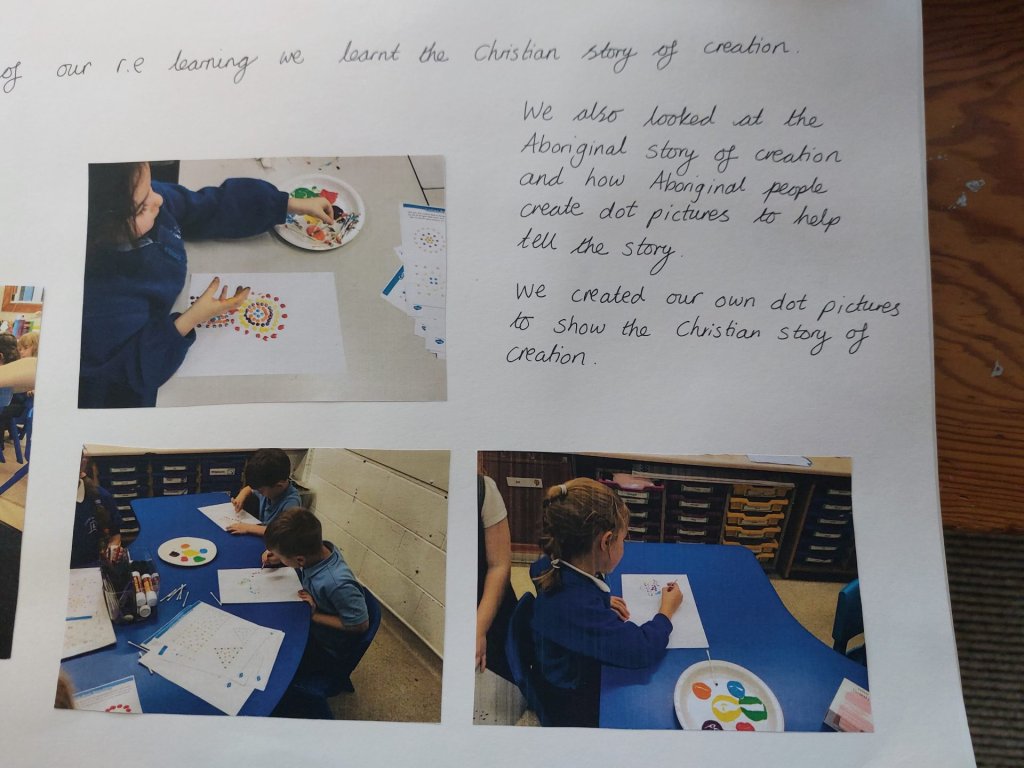
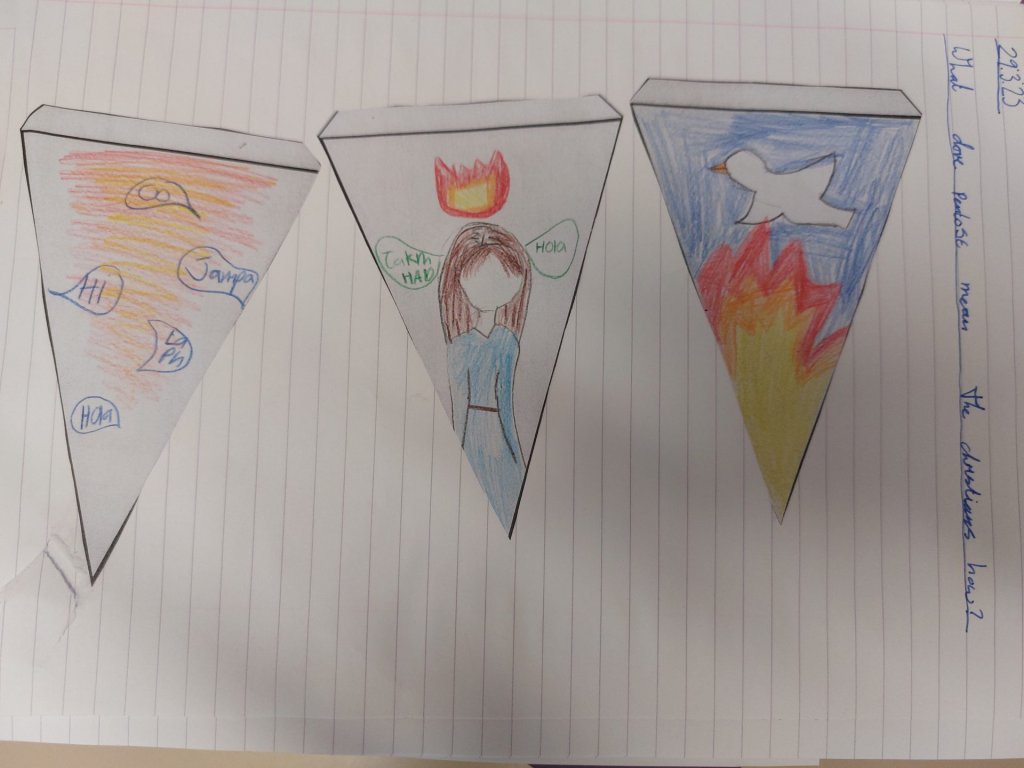
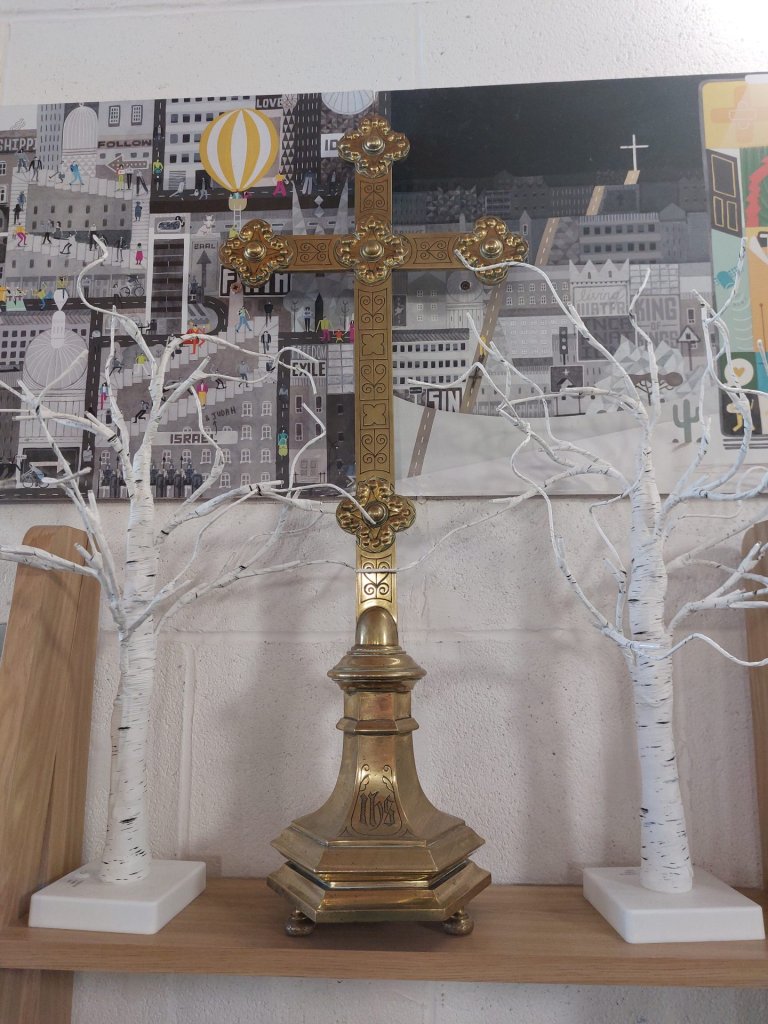
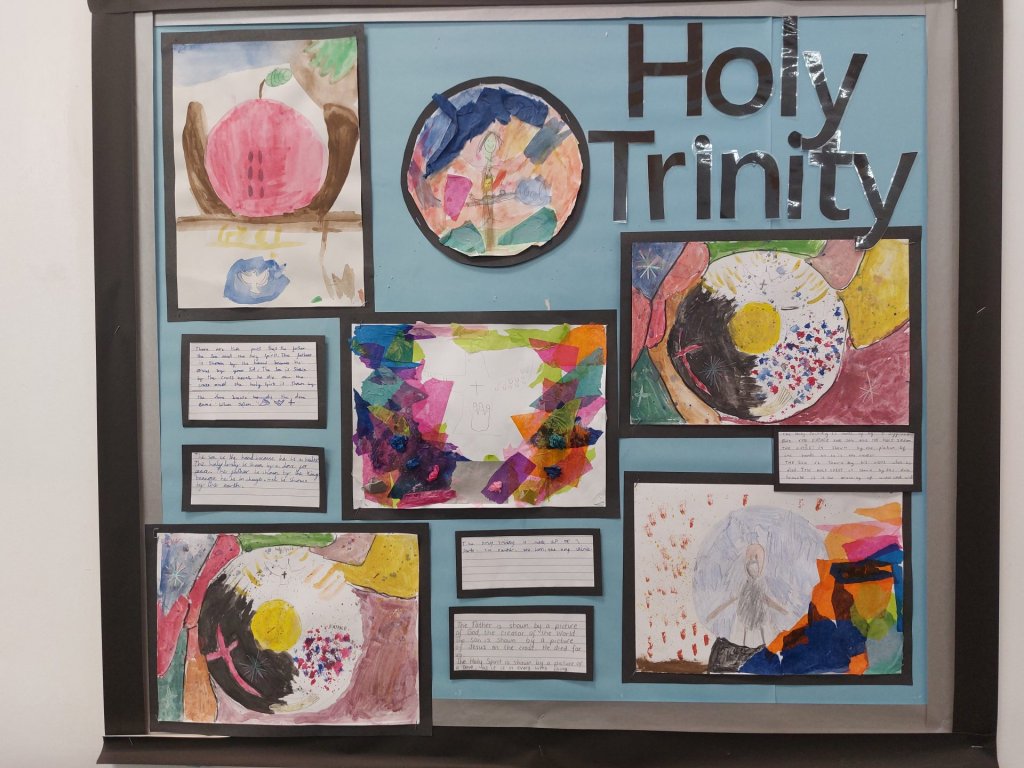
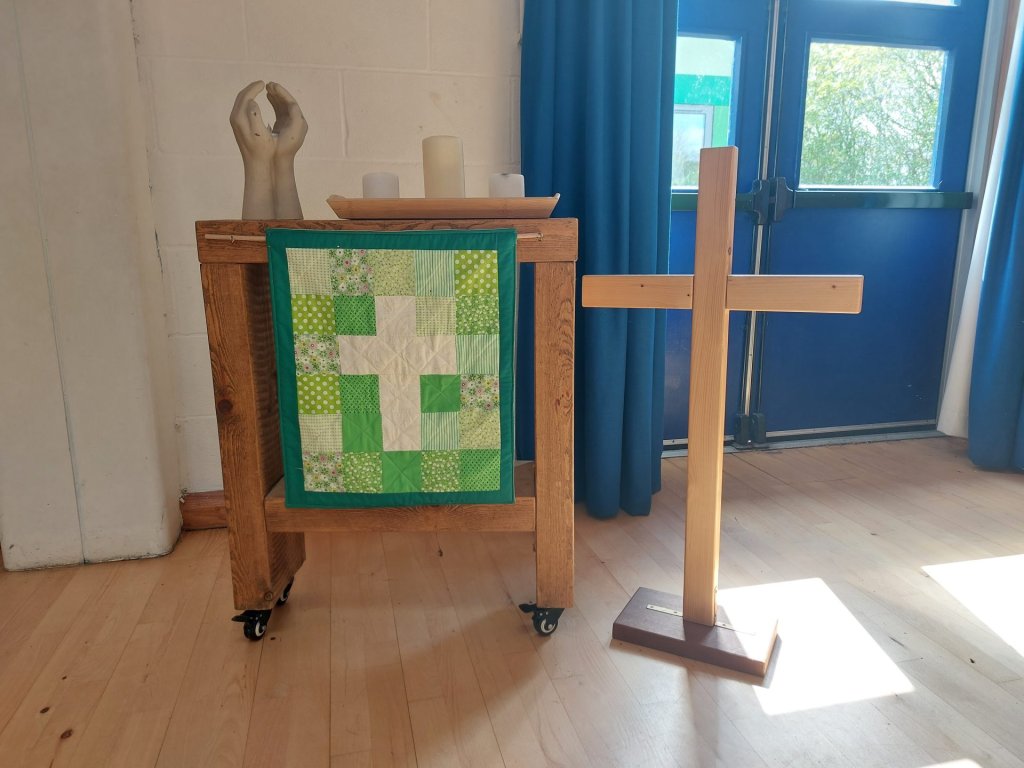
What does RE look like at Staverton?
We teach RE in a blocked unit of 5-6 lessons. We have one unit of RE each term. Our units are either on Christianity or another world faith, with Christianity making up approximately half of our units.
The units on Christianity are taught through the scheme Understanding Christianity. This focuses on key themes and phases of the story within the Bible: Creation, People of God (Old Testament), Incarnation (Christmas), Gospel (Jesus’ life), Salvation (Easter), Kingdom of God (Christianity after Easter and today). Within each unit on Christianity we start by looking at the text and the key story of the unit. We then look at the impact of the story and values within the story on Christian’s lives today, before making connections between the values shown in the story and reflecting on their own views within the context of their life.
We teach several other world views throughout the curriculum as we want our children to have a broad understanding of different faiths. In KS1, this is focused on Islamic and Jewish faiths. In KS2, we have units which cover Islam, Judaism, Sikhism, Hinduism, Buddhism and Humanism (which covers agnostic and atheist world views). For other world views and faiths, we use a scheme called The Emmanuel Project. This focuses on a key concept or belief within the religion and uses an enquiry cycle, starting with Engaging, Enquiring, Exploring (the key text, the community practice and how they live this out), Evaluating, then Expressing their understanding.
Please see our RE policy (located on our policies page) for more information, including the right to withdraw from RE learning.